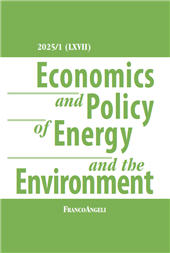A critical legal reflection on the fossil fuel non-proliferation treaty initiative
147-167 p.
Realizing the importance of reducing the production and supply of fossil fuels in achieving the goals of the Paris Agreement, among other initiatives, the fossil fuel non-proliferation treaty (FFNPT) initiative to phase out fossil fuels was presented by scholars in 2019. This initiative, which is based on an analogy with the principles and structure of the non-proliferation treaty (NPT), has gradually attracted the attention of civil society and some small island countries. Is the analogy between these two documents appropriate? And assuming it is appropriate, will this analogy be useful? The analysis shows that the similarity between nuclear weapons and fossil fuels has been exaggerated, and relevant dissimilarities between the two documents in terms of context, object and purpose, and structure have been overlooked in a way that makes the analogy disproportionate. In addition, the non-realization of nuclear disarmament and vertical non-proliferation under the NPT indicates the lack of efficiency necessary
to prove the usefulness of the analogy. Although the FFNPT initiative can be effective in creating and intensifying civil movements against fossil fuels due to the oversimplification of the problem of phasing out fossil fuels, it is not compatible with existing international realities within state-oriented international law. Due to the lack of time to achieve the goals of the climate change regime, it is better to focus on more operational initiatives. [Publisher's text]
-
Articles from the same issue (available individually)
-
Information
ISSN: 2280-7667
KEYWORDS
- NPT, FFNPT, analogy, climate change, phasing out fossil fuels


